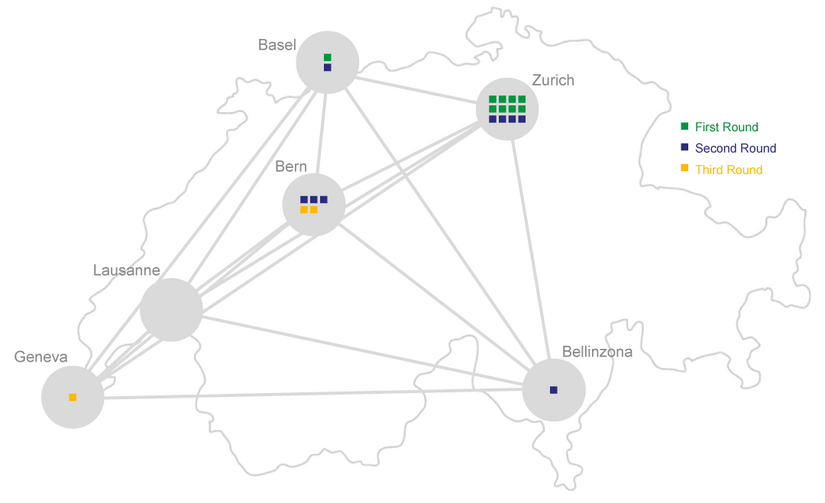A Unique Opportunity in Switzerland

The third generation of Predoc students have just started their first rotations, time to have a look at the program’s development so far.
The Predoc Program RNA & Disease Switzerland offers to prospective PhD students the opportunity to do research in participating NCCR RNA & Disease member and associate member laboratories. During one year, participants perform three rotations of each four months. Participants can explore different research fields, expand their portfolio of methods and build a professional network. Moreover, they have the unique opportunity to get to know NCCR laboratories, in which they might subsequently pursue their PhD studies.
The annual call for applications is published in spring with the application deadline in summer. The Predoc Committee, which consists of six principal investigators of the network, evaluates the received applications and shortlisted candidates are invited for interviews taking place at the beginning of September in Zurich. Based on the interviews, the Predoc Committee takes the decision, which candidates are offered a Predoc position.
Upon the program’s initial presentation, some concerns were voiced that such a program would not attract enough suitable applications. However, so far this is not the case. For example, in the last recruitment round, the Predoc Committee decided, based on the quality of the received applications, to invite twice the number of candidates for interviews than maximum spots for Predoc students available.
Over the first three rounds of recruitment, nine out of twelve candidates accepted the offered Predoc position. Participants are assigned one of the Predoc Committee members as a mentor and contact the labs in which they would like to perform their rotations. The decision of whether or not to host a given participant is up to the respective laboratory. So far, participants do not seem to have difficulties in finding laboratories hosting them.
The three Predoc students of the first generation started their first rotations two years ago and performed nine rotations in eight different laboratories. All three are currently pursuing their PhD studies at ETH Zurich and the University of Zurich, two of them in NCCR laboratories in which they did rotations. One rotation took place in Basel and all the other eight in Zurich. Given the high density of rotations taking place in Zurich, the Predoc Committee decided to change the regulations and make it a requirement for participants to perform their rotations in at least two cities.
Of the second generation Predoc students, one completed the program and the other two are doing their final rotations. Their rotations labs are located in Basel (one rotation), Bellinzona (one rotation), Bern (three rotations) and Zurich (four rotations), with one participant performing rotations in three different cities. Again, the nine rotations took place in eight different laboratories. The participant, who completed the program, is now pursuing PhD studies at ETH Zurich.
The third cohort of Predoc students just started their first rotations in two labs in Bern and one in Geneva, which marks the first rotation taking place in the western part of Switzerland. In conclusion, the Predoc program is running well and we expect it will continue to be a successful educational instrument of the NCCR RNA & Disease.